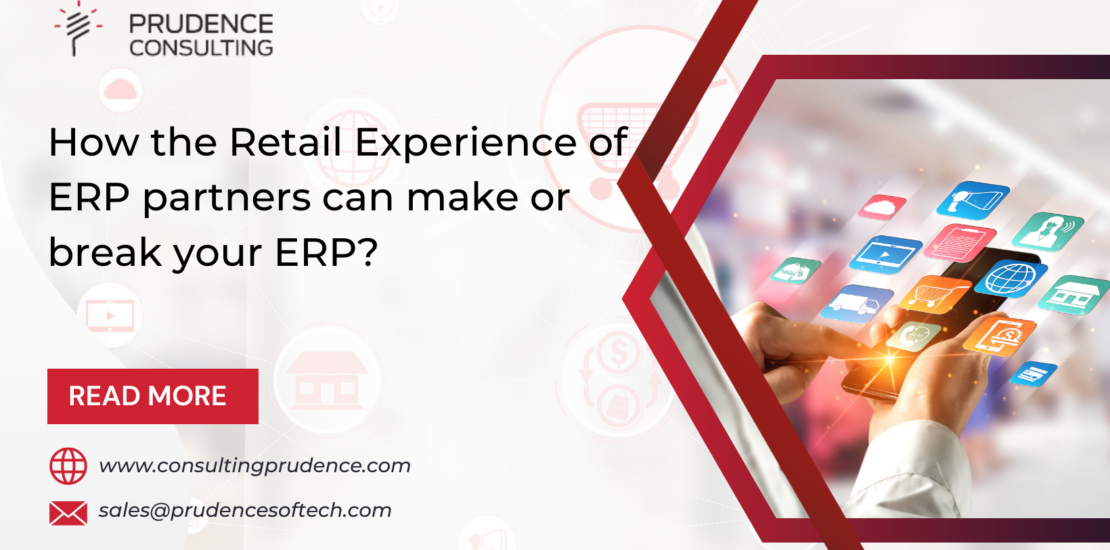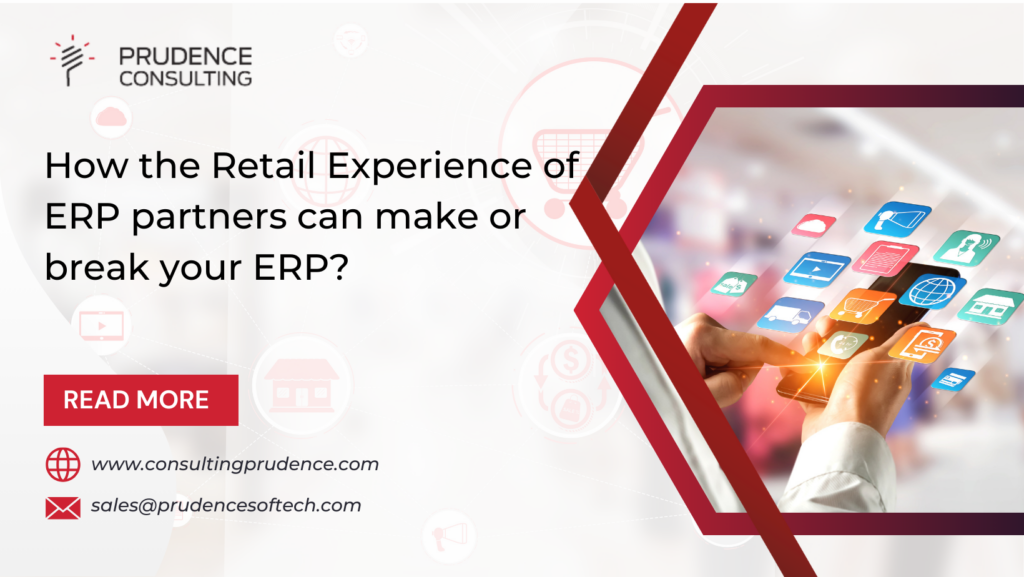How can the retail experience of ERP partners make or break your ERP?
-
April 16, 2024
- Posted by: piyush.gupta@prudencesoftech.in
- Category: Livestock & Agriculture
No Comments

- April 16, 2024
- Posted by: piyush.gupta@prudencesoftech.in
- Category: Livestock & Agriculture


Selecting the right Enterprise Resource Planning (ERP) partner is a critical decision for retailers. The success of an ERP implementation and its impact on the overall retail experience greatly depends on the expertise and retail-specific knowledge of the chosen partner. In this blog, we explore how the retail experience of ERP partners can make or break your ERP initiative, highlighting key factors to consider when selecting an ERP partner.
Also Read : ERP for dairy farm product manufacturing
The Dynamic Nature of the Retail Industry:
- The retail industry is characterized by constant change and evolution due to shifting consumer demands, market trends, and technological advancements.
- Retailers face challenges in keeping up with changing consumer preferences and buying behaviors, requiring them to be agile and responsive.
- Emerging technologies and new market entrants further contribute to the dynamic nature of the industry, creating both challenges and opportunities.
- Successful retailers understand the importance of anticipating and adapting to these changes in order to stay competitive.
- Innovation, data, and analytics play a vital role in helping retailers navigate the dynamic retail landscape.
- Adopting flexible business solutions like Microsoft Dynamics 365 enables retailers to effectively manage their operations, optimize customer experiences, and drive growth.
- Retailers must embrace a culture of innovation, continuously monitor market trends, and leverage technology to stay ahead in the dynamic retail industry.
The Importance of Industry-Specific Knowledge:
- Industry-specific knowledge provides a deep understanding of trends, regulations, best practices, and challenges within a particular industry.
- It allows businesses to tailor their strategies, processes, and technologies to meet the specific needs and requirements of their industry.
- In the retail sector, industry-specific knowledge includes understanding consumer behavior, supply chain management, inventory control, and customer engagement.
- Having industry-specific knowledge helps businesses make informed decisions and develop effective solutions to stay ahead of the competition.
- It builds credibility and trust with clients and partners as businesses demonstrate their expertise in navigating industry complexities.
- Industry-specific knowledge enables organizations to optimize their operations and deliver exceptional value to customers.
- It is essential for driving sustainable growth and remaining competitive in a dynamic business environment.
- By leveraging industry-specific knowledge, businesses can adapt to changing market trends and seize opportunities for innovation and success.
Also Read : ERP for dairy milk product manufacturing
Conclusion:
In the retail industry, selecting an ERP partner with significant retail experience is vital for a successful ERP implementation. A partner well-versed in the unique challenges and requirements of the retail landscape can provide tailored solutions, streamline operations, enhance customer experience, and drive business growth. By considering factors such as industry-specific knowledge, customization capabilities, supply chain management, and customer experience, retailers can make informed decisions and choose an ERP partner that will support their retail journey and help them stay competitive in the ever-evolving retail landscape.


